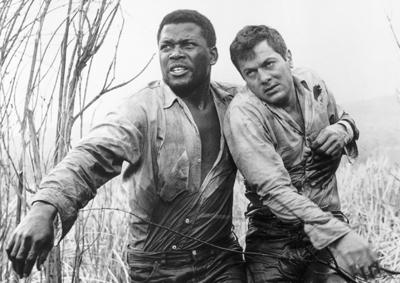UCLA Film & Television Archive is proud to present this series celebrating the centennial of influential producer-director Stanley Kramer, a key figure of postwar American cinema. Trained in the studio system in a number of supporting positions, and as an Army enlistee and sometime producer of training films, Kramer got his break upon returning to civilian life with the emergence of independent production as the studios retrenched in the postwar economy. First as a producer, and later as a producer-director, Kramer became a proponent of socially relevant material as a filmmaker with a very definite point of view. He featured prominent actors in his films while tackling difficult subjects such as racism, fascism and nuclear policy. This approach set precedents in Hollywood for storylines of this sort which had rarely been pursued as consistently or as successfully as they were by Kramer, garnering box-office success and great critical acclaim. Kramer’s 35 films (as a producer and director) won him and his associates 16 Academy Awards. Among his films’ 85 Oscar nominations, Kramer received nine nominations himself. In 1961, the Academy of Motion Picture Arts & Sciences bestowed upon Stanley Kramer their highest honor, the Irving G. Thalberg Memorial Award, in recognition of the consistent high quality of his body or work. This series recounts some of the more fascinating landmarks in Kramer’s career, including titles rarely screened, by way of recognizing a career built on excellence and commitment.
Note: Selected screenings in this series will feature in-person appearances by participants in some of the productions, and notable persons influenced by Kramer’s career who will introduce the films. Please watch the Archive’s website, www.cinema.ucla.edu, for updates.
Special thanks to: Jennifer Ahn—The Film Foundation; Grover Crisp—Sony Pictures Entertainment; Karen Sharpe Kramer.






 Mobile Navigation
Mobile Navigation











